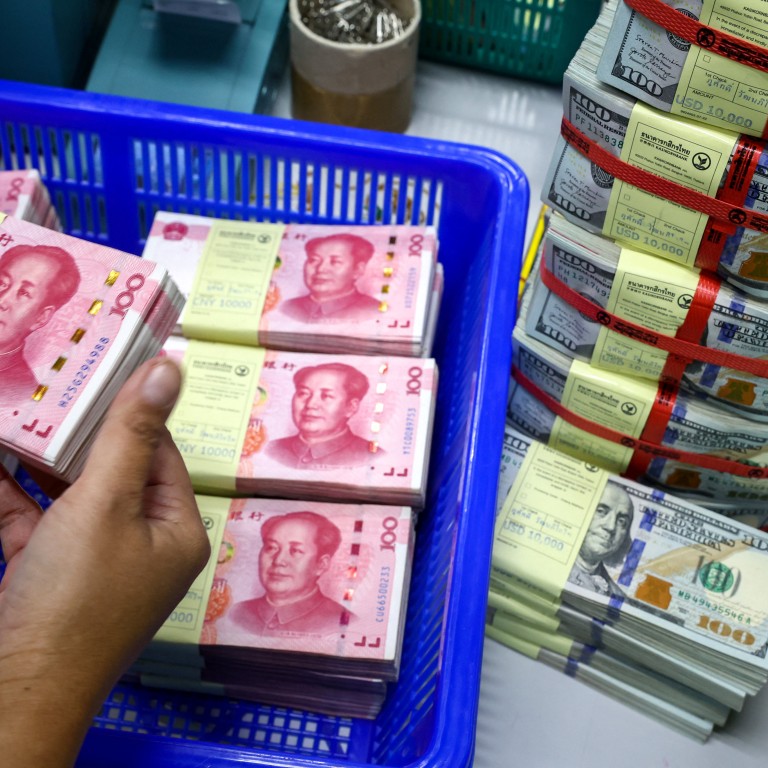
De-dollarisation interest jumps amid financial fragmentation, but US dollar dependence not ‘a very easy thing to overcome’
- International Finance Forum say a trend of using regional currencies rather than US dollar is a result of unprecedented US monetary tightening
- But dependence on the US dollar is not going to be a very easy thing to overcome, said former central bank of Malaysia governor Nor Shamsiah
Interest in de-dollarisation is increasing given growing financial fragmentation risks worldwide, according to a report, but there is still not a credible alternative to the US dollar despite yuan internalisation efforts, political and financial leaders said at a forum at the weekend.
The report by the International Finance Forum (IFF) attributed the trend of using regional currencies rather than the US dollar to the adverse spillovers of unprecedented US monetary tightening.
“[De-dollarisation] could be one of the unintended consequences of the financial fragmentation,” the IFF report released on Saturday said.
Without good options to diversify, China can’t wean itself off US dollar assets
Financial sanctions could be weaponised, along with other forms of restrictions including embargoes, trade wars, seizure of assets, limiting access to capital and technology and screening of investments, which could eventually lead to global financial fragmentation, the report warned.
The escalation of US-led financial sanctions against other countries has substantially raised concerns within emerging markets about “currency weaponisation” and diversification away from US dollar-denominated assets, the report added.
However, political and financial leaders said at the IFF in Guangzhou on Saturday that there is not a credible alternative major currency that could absorb much of the global operations occupied by the US dollar.
The 2023 Global Finance and Development Report by the IFF echoed research released by the PBOC on Friday, which showed the yuan’s share in global payments, trade finance and central bank reserves is still far behind the US dollar despite progress in the past decade.
Measured by central bank indicators, the yuan’s internationalisation index rose by 10.2 per cent from a year earlier to 3.26 by the end of March, lagging far behind 57.68 for the US dollar and 22.27 per cent for the Euro.
Former central bank of Malaysia governor Nor Shamsiah said at Saturday’s forum in Guangzhou that the pursuit for regional currencies was driven by rising regional trade, not de-dollarisation.
I think the dependence on the US dollar is not going to be a very easy thing to overcome
When it comes to the need to develop alternative currencies, countries must, she added, deepen the use of their own local currency in financial markets.
However, convertibility of the yuan is one of the widely cited reasons holding back internalisation efforts.
“Because an exporter once received yuan for their goods, they need to be able to invest the yuan that they received. But on the other hand, when it comes to yuan, for example, there are still a lot of restrictions with respect to investment in the financial market that’s not liquid,” Shamsiah said.
“I think the dependence on the US dollar is not going to be a very easy thing to overcome.”
The steps that would be necessary to create a truly credible alternative, major currency that could absorb much of the operations are currently occupied by the dollar
John Lipsky, an American economist and co-chair of the Bretton Woods Committee, said at the forum in Guangzhou that de-dollarisation and fragmentation of financial markets has not yet happened.
“However, the steps that would be necessary to create a truly credible alternative, major currency that could absorb much of the operations are currently occupied by the dollar,” he said.
Lipsky added that policies and measures that would reduce trade protection and potential vulnerabilities are needed globally, as well as a return towards a more rule-based international trading system and one less prone to protectionism and sanctions.

